Freelance Journalism for Magazines and Webzines Course
Freelance Journalism for Magazines and Webzines Course
Become a Freelance Journalist in the Gig Economy
A fast, effective way to learn the skills required to write and sell articles for print and web publications
The Freelance Journalism for Magazines and Webzines Course trains you to write engaging, well-researched articles. The Era of the Freelancer has arrived, a time when you can write from home for a dozen different clients all over the globe.
You will, however, need a new set of skills for this exciting career journey. To succeed as a magazine freelancer, you have to be versatile, able to write a feel-good feature one day and make sense of a scientific paper the next. You will have to produce work that ranges from long-form to short-form, from blog material to print journal articles. Our Freelance Journalism Course teaches you how to write articles for a range of print and web publications.
You’ll learn how to come up with ideas that sell, how to approach editors, the secrets of a good interview, how to craft your story from beginning to end, and how to run your freelance agency successfully.
The Freelance Journalism for Magazines and Webzines Course Gives You...
No Automated Marking
We use traditional methods of assessing work, as editors at publishing houses would. No generic feedback!
A Flexible Schedule
Work wherever and whenever you want. You can easily fit our courses around work and other commitments.
Relevant, Usable Content
Easy-to-digest course notes that capture a lifetime of writing experience, ready for you to apply to your own writing.
Ongoing Assessment
Your writing is assessed continuously as your course progresses.
Expert, Individual Feedback
Get prompt, honest, detailed feedback on every assignment from an award-winning writer. We focus on your unique writing strengths.
No Peer Reviews!
You will only be assessed by your tutor, a leader in their field. No more guessing and wondering how to write; you'll be guided line by line.
Make Your Articles Stand Out Using Great Writing Skills
A smart way to jump-start your journalism career
Over 11 modules, you will be tutored by a highly skilled journalist who is not only teaching his/her craft but also working in the field.
With 300 pages of course notes and 20 writing exercises, this course addresses all the questions that beginner journalists have, helps you avoid the pitfalls of freelance writing, and teaches you how to hone your writing style.
Walk away with two full-length, publishable articles.
Make Your Articles Stand Out Using Great Writing Skills
A smart way to jump-start your journalism career
Over 11 modules, you will be tutored by a highly skilled journalist who is not only teaching his/her craft but also working in the field.
With 300 pages of course notes and 20 writing exercises, this course addresses all the questions that beginner journalists have, helps you avoid the pitfalls of freelance writing, and teaches you how to hone your writing style.
Walk away with two full-length, publishable articles.
'A very worthwhile experience which I have benefited from immensely. Very relevant and a must for anyone hoping to break into the industry.'
Ian Middleton, Freelance Journalism Course
Course Overview
COURSE FEE
$ 1 395
Price includes GST
NUMBER OF ASSIGNMENTS
20
The assignments vary in length.
NUMBER OF MODULES
11
These modules include around 300 pages of course notes.
COURSE DURATION
12
Work at your own pace – up to a maximum of 12 months.
START DATE: ANYTIME
Working with an individual tutor means you can start the course at any time.
ADMISSION REQUIREMENTS
- Basic writing skills are essential.
- Computer skills, e-mail and Internet access required.
- No previous tertiary qualification required.
Our Graduate Students' Successes
We are proud of our graduates who have achieved success. Here are a few among dozens of other journalism success stories.
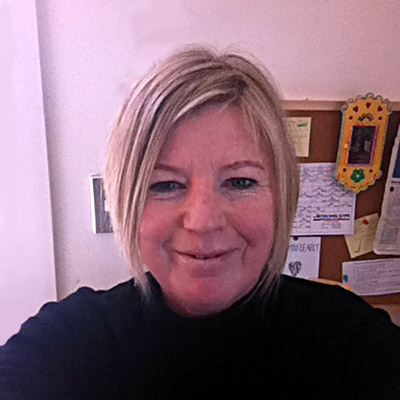


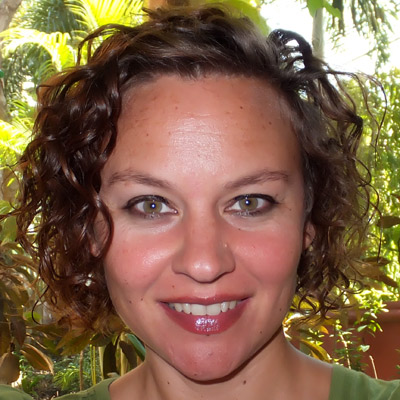
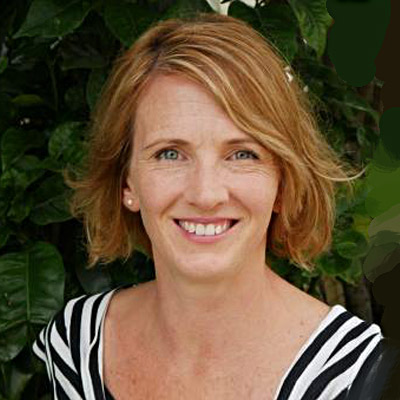

Tutors for this Course
You may choose a tutor that you would like to work with.
Sarah Lang
An award-winning feature writer, Sarah Lang worked at North & South magazine for four years, and since then has freelanced for North & South and around 15 other magazines (stand-alone and insert). She was lead writer for the Herald On Sunday’s View magazine for several years, and she was Capital magazine’s books’ and culture writer/editor for 10 years. Now she works part-time for Capsule (capsulenz.com) each week, and also writes some features for other magazines including Kia Ora, the NZ Listener, and international magazine Monocle. Sarah has interviewed everyone from Dame Helen Mirren to sick children and science boffins, and has written hundreds of stories including many profiles and arts features through to science and business writing. She also organised Next magazine’s Next Woman of the Year Awards. Originally from Whanganui, Sarah is a booklover with a BA in English Literature from Victoria University of Wellington and a Bachelor of Communication Studies (journalism major) from AUT University. She is in charge of Theo, nine, and the 10-year-old Wellington Classic Literature Meetup group.
Read our interview with Sarah here.
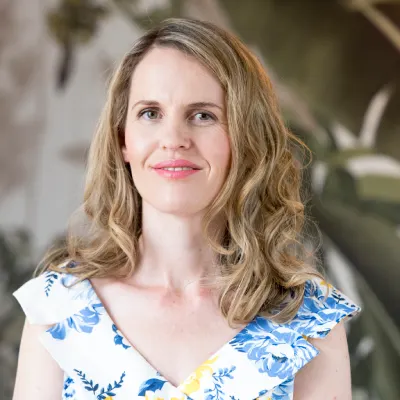
Ewan McDonald
Ewan McDonald is a multi-award-winning editor, journalist and critic. As features editor of the NZ Herald, editor of The Aucklander, and as a travel and food & wine writer, he and his teams have won more than 50 national and international awards.
Previous roles include Managing Editor of Custom Publications for New Zealand’s largest media company, NZME, with responsibilities from travel publications to Motoring, Lifestyle, Food and Wine, Real Estate and Commercial Property, Entertainment and Sustainable Lifestyle & Business publications.
He was Founding Editor of New Zealand’s most awarded community newspaper, The Aucklander. For 12 years he was the country’s most widely read restaurant reviewer, featuring in Viva (NZ Herald) and www.nzherald.co.nz. He has written about travel for more than 20 years, mostly for the NZ Herald, associated publications and the NZ Woman’s Weekly.
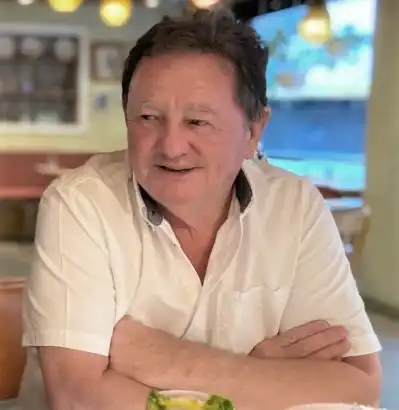
Donna Dailey
Donna Dailey is a travel writer and photographer whose work is published in magazines, newspapers and travel websites worldwide. Her articles have appeared in Journeys, Essentially America, Endless Vacations, CNN Traveller and other consumer magazines; national newspapers such as The Times, Sunday Times and Daily Mail; and on travel websites for Rough Guides, RCI and more. She has won several travel writing awards from the British Guild of Travel Writers, including runner up Travel Writer of the Year, Best UK Feature and Best Overseas Feature, as well as a Visit USA Association media award for Excellence in Specialist Travel Magazine Journalism.
Donna has written or contributed to more than 40 guidebooks and inspirational travel books, covering destinations in Europe, Africa and America for such publishers as DK, Insight Guides, Berlitz, Fodor’s, Thomas Cook and AA Publishing.
Donna has a BA in Journalism and Radio-TV from the University of Northern Colorado. When not on the road, she divides her time between Cambridgeshire, England and southern Arizona, USA.

Course Curriculum
Module 1
- Distinguish magazine writing from other genres of writing.
- Acquire an understanding of the elements that characterise magazine journalism.
- Get answers to FAQ about a career in magazine journalism.
- Writing Exercise 1: Practise writing scenes that ‘show’ rather than ‘tell’ (assessment and feedback task).
Module 2
- Analyse a magazine in terms of content, style, format, tone, target market and demographic.
- Learn how to match your writing with that of a selected magazine.
- Distinguish between the different types of articles found in magazines.
- Writing Exercise 2: Analyse the demographic, style, tone and format of a selected magazine (assessment and feedback task).
Module 3
- Know where and how to find saleable ideas.
- Learn techniques for generating ideas.
- Distinguish between a topic and an angle.
- Study an overview of prominent international publications.
- Writing Exercise 3: Refine topics into angles. Come up with an angle for an article (feedback task).
Module 4
- Find out how to write the perfect query letter.
- Distinguish between writing on speculation versus querying and being commissioned.
- Writing Exercise 4: Write a query letter. (feedback and assessment task)
Module 5
- Plan and map a structure of your piece.
- Learn interviewing techniques.
- Source reliable information.
- Understand what plagiarism is and how to avoid it.
- Writing Exercise 5: Map out your proposed article and research plan, ensuring logical flow of content (feedback task).
Module 6
- Understand the critical elements for writing a compelling lead.
- Identify the different types of introductions.
- Writing Exercise 6: Write a compelling opening to your article (assessment and feedback task).
Module 7
- Identify the main components of an article.
- Use a basic story structure to map out your piece.
- Use transitions and logical flow to facilitate easy reading.
- Writing Exercise 7: Test your knowledge on logical flow of content, use of transitions, consistent point of view and tenses (assessment and feedback task).
- Writing Exercise 8: Write up the body of your article. (feedback task)
Module 8
- Familiarise yourself with the main grammar, style and punctuation rules.
- Know the rules for apt usage of quotations.
- Find out how to create catchy sidebars and resource boxes.
- Writing Exercise 9: Panel-beat the body into shape (feedback task).
Module 9
- Identify the different types of closers.
- Writing Exercise 10: Write the closer for your piece (feedback task).
Module 10
- Edit your piece by following basic guidelines.
- Understand the different kinds of cover letters and how to submit your piece in a professional way.
- Invoice and organise payment for your stories.
- Understand the basics of copyrighting and syndication.
- Writing Exercise 11: Edit your piece and submit it with a cover letter (assessment and feedback task).
Module 11
- Understand how writing magazine articles for the Web is different.
- Discover how to use keywords, headlines and hyperlinking.
- Learn how to write an article for a webzine.
- Writing Exercise 12: Write a 600-word article for a specific online platform according to a given brief (assessment and feedback task).
What Our Students Say
The Freelance Journalism Course is a practical and effective writing skills course, managed by a professional team. In a convenient time period, I have completed my course, gained new skills and revised old, rusty ideas. The Writers College is amazing (and I am in no way exaggerating). Thank you to a great team – smooth sailing from the administration process to the course itself. Your communication throughout is a BONUS!
My experience on the course was mind-blowing. I was seriously impressed by the thoroughness of the course, the kindness, availability and efficiency of the staff and tutors.
I really enjoyed the course. Both the course material and the tutor made it easy to understand and fun to do. My tutor was brilliant. She gave super speedy replies, great advice and constructive feedback. Overall, it was a fantastic experience and practical too. I would recommend The Writers College to anyone wanting to hone their writing skills.
It was a very well structured course that is perfect for extramural learning and a great introduction into the magazine journalism industry. I received amazingly thorough feedback that was helpful, encouraging and practical. My tutor really made this course for me and went over and above all my expectations. For someone looking to enter the industry, but with no experience, this course has given me knowledge of magazine journalism as well as get me started with writing samples and the confidence to submit query letters.
It was challenging but it was worth it. I enjoyed all of it and I have learned a lot of skills that will help me in my journey to become a journalist. Tracey was professional , she helped me, supported me throughout the course. Overall, I loved it and I would definitely do another course with The Writers’ College.
This course has given me a fantastic ‘taste’ of a career I hadn’t previously considered, and has provided me with some really practical skills and knowledge. Sarah was a fantastic tutor – she provided detailed feedback on all my assignments and was extremely encouraging throughout the course. I have learnt a huge amount from her. She kept in regular contact so I stayed on track but she never rushed me. Being able to work at my own pace and do everything online has made it possible to complete the course while having a demanding full time job. I have learnt a lot about the basics of Magazine Journalism and have produced two articles I’m really proud of.
Get These Additional Benefits
Lifetime Course Access
Benefit from free lifetime access to future course updates and access to our writing resources.
Work at Your Own Pace
Our courses work around you. You can pace your course around your busy life.
500+ Bonus Articles on Our Blog
A superb, constantly updated resource with articles on writing and interviews with writers.
Work Opportunities
Top students are invited to join our writers and editors for hire service.
Be the First to Know About Writing Competitions
We'll help you keep up to date with the latest competition announcements
Join a Community of Writers
You will have access to our friendly Facebook community, daily writing tips and writing inspiration.
Risk-Free 100% Money-Back Guarantee
We are so confident that you will love your course that if you’re not 100% satisfied with the quality of our training, simply ask for a refund within 30 days.
Complete the Application Form to Enrol on the Freelance Journalism for Magazines and Webzines Course
You will receive an approval email and invoice within one working day.
Should your form not submit, please let admin know at admin@nzwriterscollege.co.nz
Questions?
We've Got Answers
Detailed course notes covering the content of each module are emailed to you.
At the end of each module, you will be required to complete one or two writing exercises. In total, the course includes 20 writing assignments, many of which count towards your final result.
You must produce one query letter (300–600 words), one cover letter (up to 300 words) and two feature-length articles.
Once you have completed a writing assignment and emailed it to your tutor, you will receive an assessment and feedback, and the module will be considered complete. You can also participate in ongoing online discussions by posting comments about the course or other issues pertaining to writing on The Writers College blog.
Absolutely. You have direct communication with your tutor for the duration of the course. The more questions you ask, the more you will get out of the course.
You will get lifetime access to the course. You will also benefit from future updates and improvements to the course.
For the majority of our courses, only your tutor will see your work. It will remain completely private unless you get it published. The journalism courses might see your work published in the public domain, but you do have the final say as to whether or not this happens.
You will receive a Writers College Certificate upon successful completion of the course, provided you meet the following conditions:
- All 20 writing assignments must be completed.
- The course must be completed within 12 months of registration.
- A minimum average of 50% for the course must be achieved.
- Basic writing skills are essential.
- Basic computer skills, as well as email and Internet access are required.
- No previous tertiary qualification is required.
Because you will work with an individual tutor, you can start your course as soon as your application has been approved. There are no specific start dates as would be the case with a traditional college.
An application is usually approved within one working day. Once we receive proof of payment, your can start your course.
You could be starting your course today!
- Reading Time: 15 hours
- Writing Time: Up to 40 hours
- Research Time: Up to 20 hours, depending on the complexity of your articles.
You can easily complete the course within six to 12 months. You will get an extra 21 days if your course runs over the New Year break.
You are welcome to finish the course sooner if you want, but we wouldn’t want you to rush the process too much!
Once your application has been approved, you will receive notification of approval and an invoice via email. As soon as we receive proof of payment, the first module as well as your tutor’s email address and your login details will be sent to you. Your tutor will also be in touch to welcome you.
Any work created on our courses is owned by you. We will never make a claim to anything you produce. We follow the rule that copyright subsists with the creator (you).
'I couldn't be happier! I have come out of the course with all the know-how I need to pitch articles to magazine editors and successfully begin a career as a freelance journalist.'
Helen Glenny, Freelance Journalism Course
Got More Questions?
We would love to help you choose the best course for you. Tell us what style of writing you want to develop and we'll give you some options.
Other Writing Courses That May Interest You
Learn how to write travel articles for leading local and international publications, and produce a publishable travel piece.
Whether you want to earn an income from writing web articles, content for your blog or digital media for your employer, we will teach you the skills you need to write articles that stand out.
Learn the writing skills demanded by the challenging and burgeoning field of public relations, and write a saleable press release.